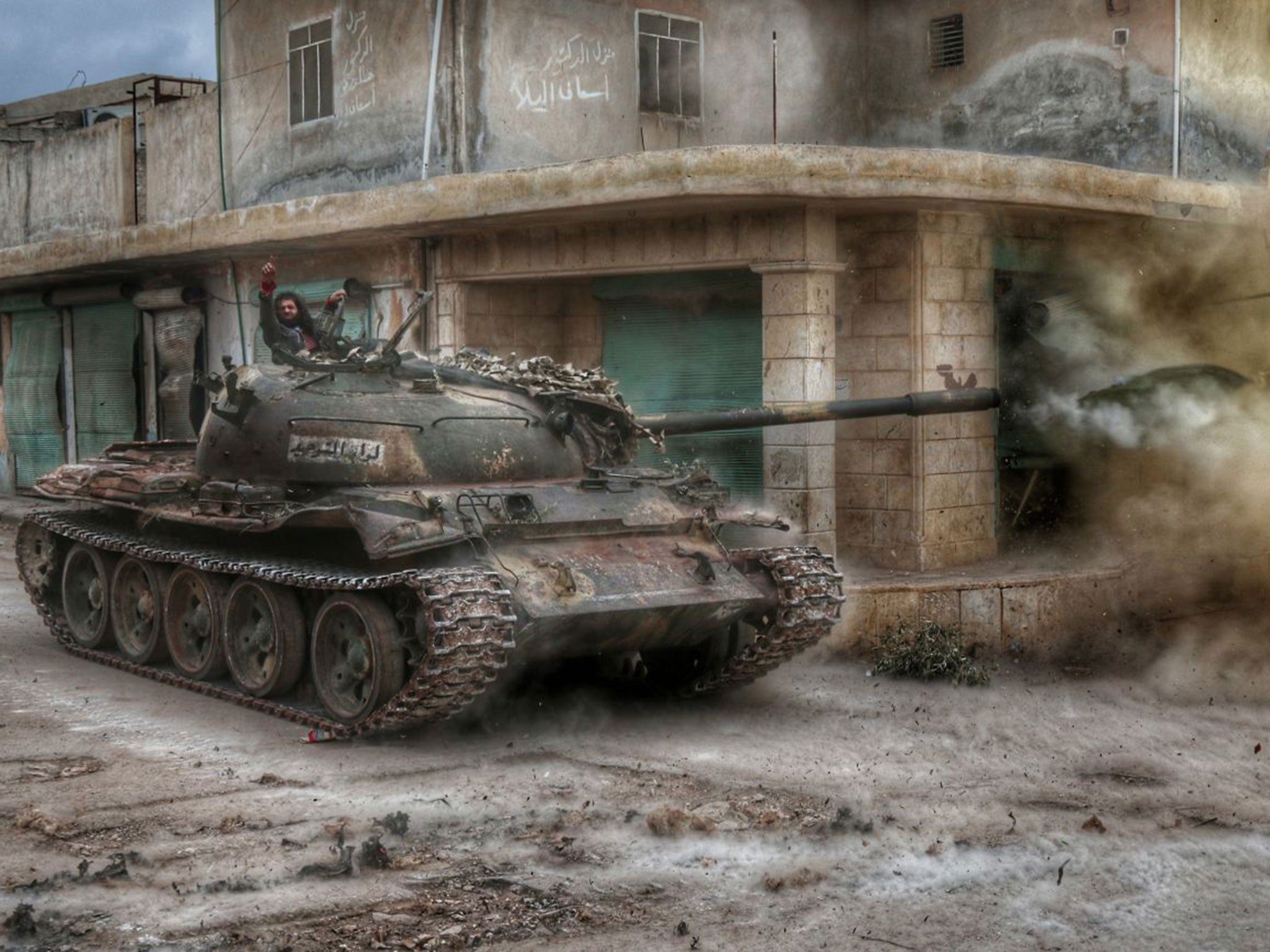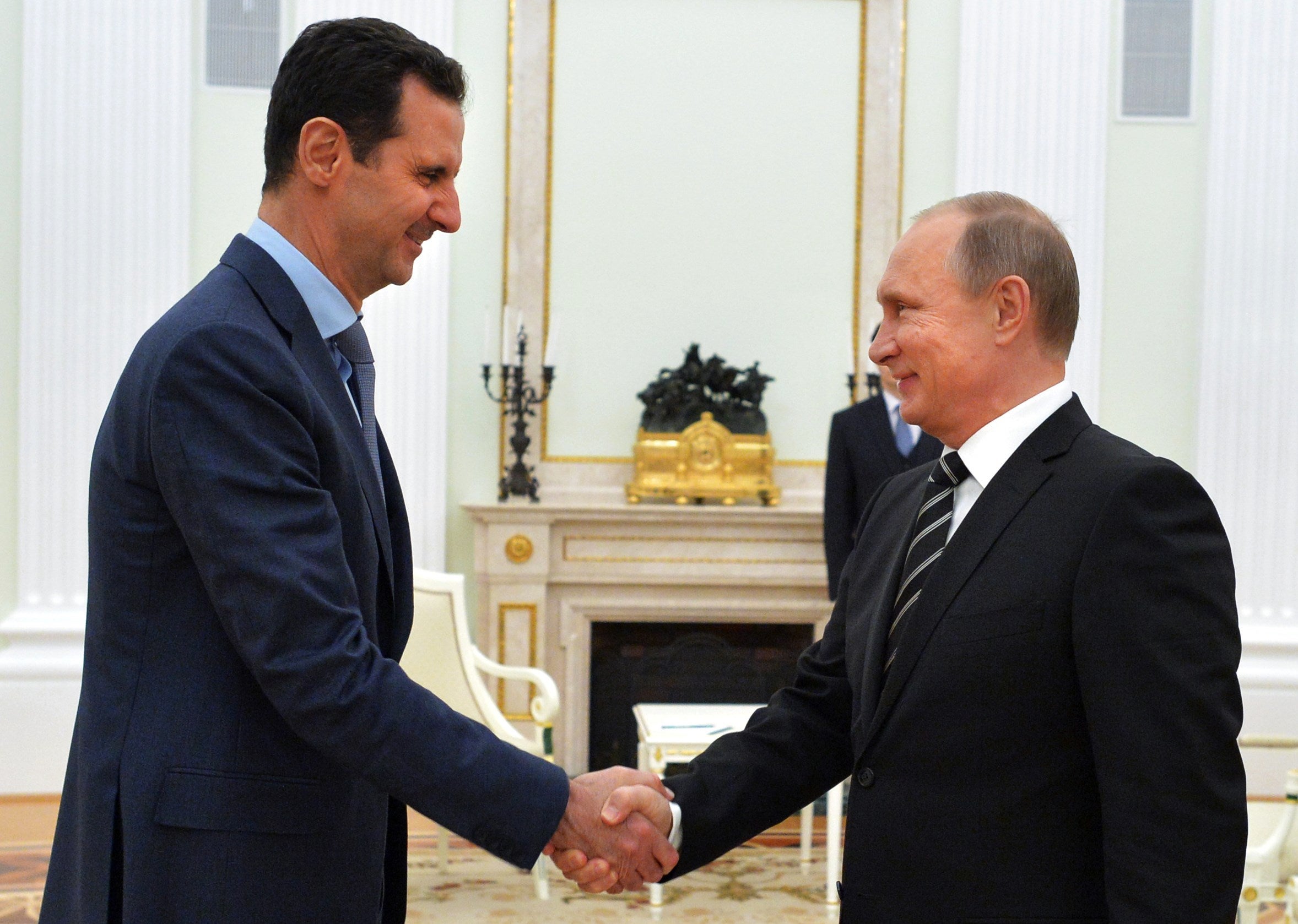Syria peace talks: Opposition agrees to ceasefire after temporary truce negotiated by US and Russia
The latest attempted deal would take effect on Saturday
The Syrian opposition has agreed to a temporary truce with Bashar al-Assad’s forces after weeks of failed attempts to secure a peace agreement.
The High Negotiations Committee (HNC), which represents the main bloc of anti-government rebels, announced this morning that its co-operation was conditional on guarantees that Russia and other allies of the regime would stop air strikes and artillery bombardment on civilian areas.
Dr Riad Hijab, the alliance’s co-ordinator, said his group was committed to efforts to “end Syrian bloodshed and push all parties to the negotiating table”.

Representatives held an emergency meeting in Riyadh, Saudi Arabia, on Monday after the US and Russia negotiated the terms of a prospective truce to start on Saturday.
But Isis, the al-Qaeda linked Jabhat al-Nusra group and other militias designated as terrorist organisations by the UN have not been invited to talks and will not be bound by their outcome.
A temporary “cessation of hostilities” was initially planned to start last week following discussions in Munich but was derailed by continued fighting including a regime advance in Aleppo province.
The HNC said any further attacks by Assad and its allies would end the ceasefire and called resolutions from the UN and International Syria Support Group (ISSG) to be implemented to end sieges, allow the delivery of humanitarian aid, release detainees and stop bombardment.
Dr Hijab said he did not expect the Assad regime and its allies to stop its campaign, signalling that the HNC may be preparing to continue fighting.
“Our position is clear,” he added. “We are doing our part in accordance with the ISSG agreement in Munich, and acting according to the limits of the authority granted to us by the components of the HNC.
“The HNC is going to continue to discuss, and consult with our international friends and allies, and then we will respond formally.”
Major questions remain over how the truce, which has not formally been accepted by the Syrian government, will be enforced and how groups will be reprimanded for any violations.
It was unclear how continued operations against Isis and other extremists by the US-led international coalition and Russia would affect the agreement.
The Kremlin has insisted the group is its main target but opposition groups and Western leaders have alleged its strikes have mainly targeted areas controlled by the opposition, killing countless civilians.

A five-page plan released by the US State Department set a deadline for compliance at midnight on 26 February and stipulated that there must be no attempts to seize territory, although the “proportionate use of force” for self-defence is allowed.
It was published after Barack Obama and Vladimir Putin agreed the plans in a phone call.
Josh Earnest, the official White House spokesperson, admitted it would be “difficult to implement”, adding: “We know there are a lot of obstacles, and there are sure to be some setbacks.”
The Russian President called the agreement a “last real chance to put an end to the many years of bloodshed and violence” and said in a televised address that while Moscow negotiates with the Assad regime, he expects Washington to do the same with the opposition groups it supports.
Ban Ki-moon, the UN Secretary-General also welcomed the agreement as “a long-awaited signal of hope to the Syrian people” but warned that much work lies ahead for its implementation.
Hours after the agreement was announced, Assad issued a decree setting parliamentary elections for 31 April, signalling possible co-operation with a UN Security Council resolution calling for a vote to be held during an 18-month transition period hoped to end the five-year conflict.
Elections were already due as the current parliament's four-year term expires in May.
Additional reporting by AP
Join our commenting forum
Join thought-provoking conversations, follow other Independent readers and see their replies
Comments
Bookmark popover
Removed from bookmarks